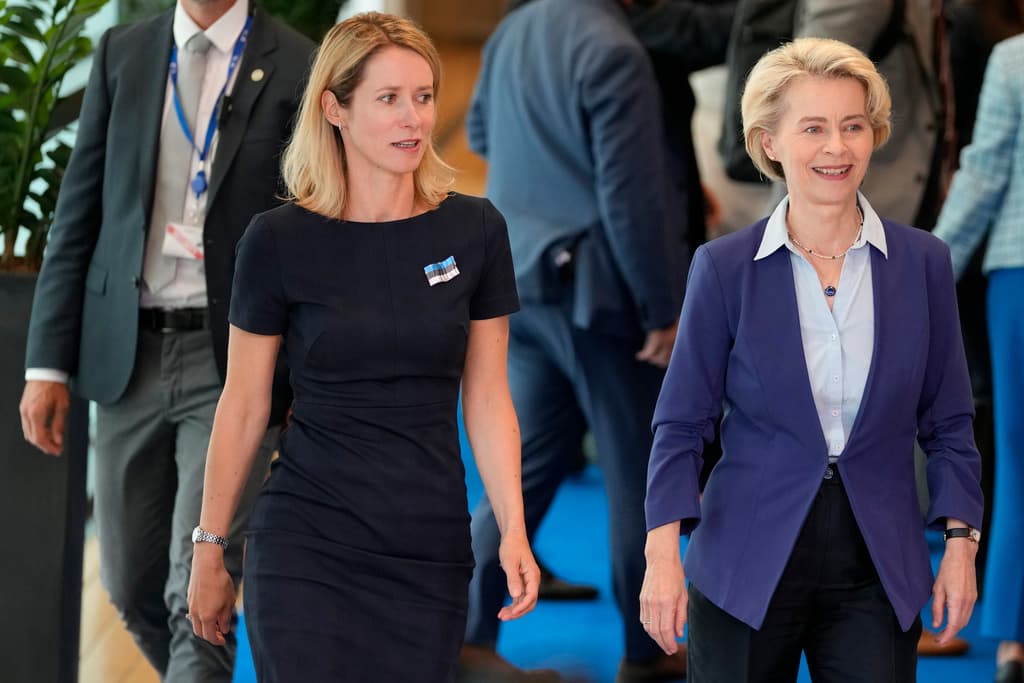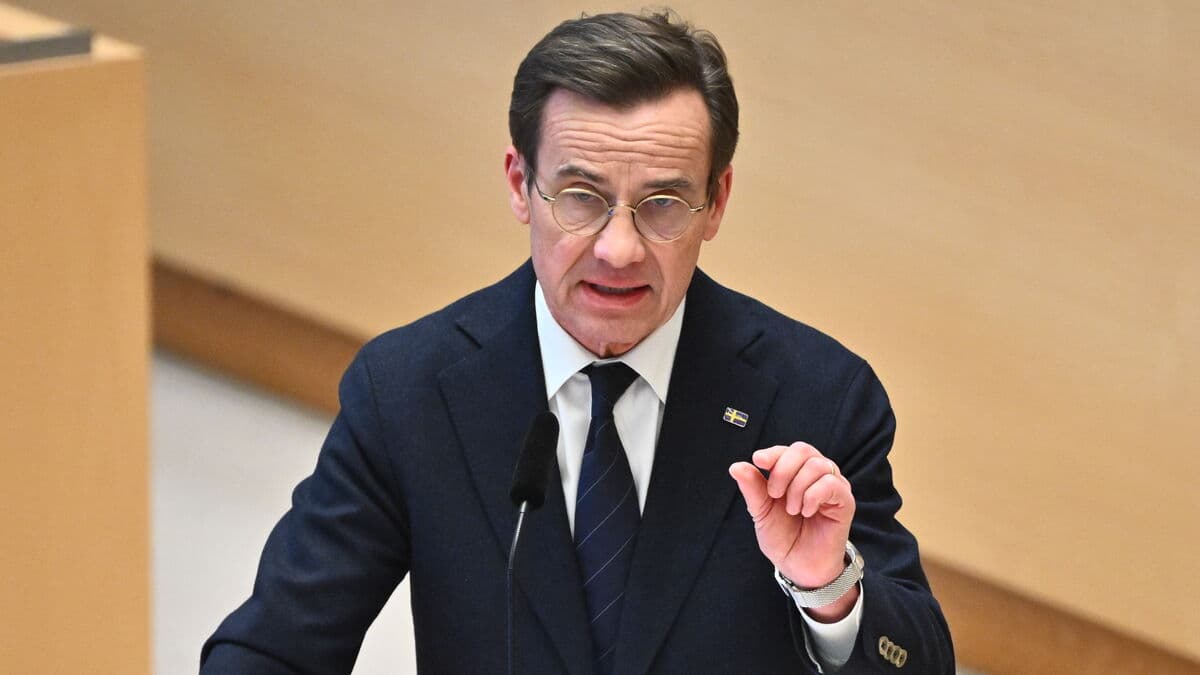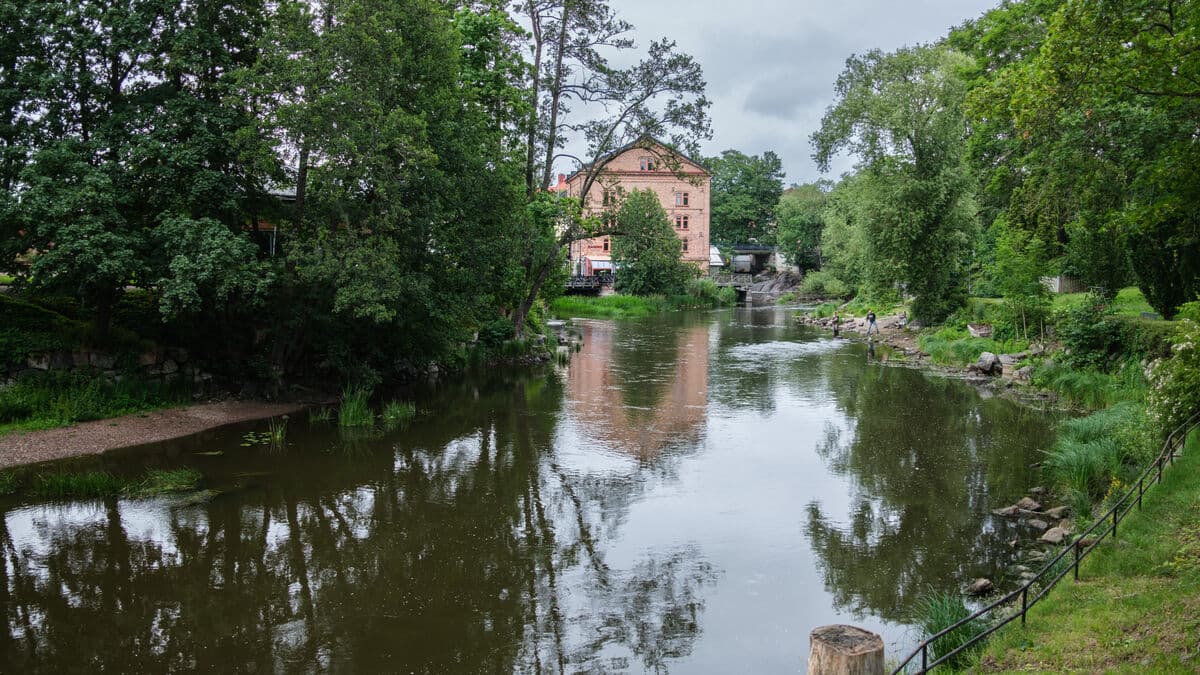The EU leaders agree on the top trio to lead the EU's work for the next five years.
The decision was made despite resistance from both Italy and Hungary.
The three names received broad support at the summit in Brussels. In addition to Ursula von der Leyen as President of the EU Commission for five years, it concerns Estonia's Prime Minister Kaja Kallas as the new Foreign Minister and Portugal's former Prime Minister Antonio Costa as President of the European Council.
But not all 27 heads of state and government were satisfied.
Italy's high-nationalist Prime Minister Giorgia Meloni abstained from voting for Ursula von der Leyen and voted no to the other two.
According to Prime Minister Ulf Kristersson (The Moderate Party), Meloni did not feel included in the process when the three names were presented.
It is completely obvious.
Meloni herself writes on X: "Wrong method, wrong content"
Clear dissatisfaction
Hungary's Prime Minister Viktor Orbán voted no to von der Leyen, yes to Antonio Costa as Council President, but abstained from voting on Kaja Kallas as EU Foreign Minister.
Meloni's dissatisfaction was clear beforehand. In the EU parliamentary election, high-nationalist parties like her own Italian brothers went strongly forward. Her party group in the EU Parliament is expected to become the third largest, ahead of The Liberals in RE.
But the three names that have now received EU leaders' support are a Christian Democrat (von der Leyen), a Social Democrat (Costa), and a Liberal (Kallas).
In the Italian Parliament on Wednesday, Meloni accused EU colleagues of acting as "oligarchs" and not taking into account the result of the EU parliamentary election.
Worse climate?
Asked if Meloni's dissatisfaction is a sign that the cooperative climate in the Council will deteriorate in the future, Kristersson responds:
One cannot exclude it. My contribution (at the summit) and several with me went out to say that it should not be like that. Sometimes you think differently and then you simply have to vote.
Sweden's government supported the three top names. In the Riksdag's EU Committee, however, V voted no to von der Leyen, while SD abstained from taking a stand.
Although a broad majority of EU leaders have now backed the three names for the EU's top jobs, Ursula von der Leyen must also be approved as EU Commission President by the EU Parliament.
Much suggests that a tough vote is waiting, provisionally on July 18. At least 361 of 720 members must support her.
It is certainly a narrow margin, says Kristersson.
The summit also adopted a strategic agenda, which in general terms outlines what the EU should focus on in the future.
It reflects in all essential priorities that we feel very comfortable with, says Kristersson.
He mentions supporting Ukraine, strengthening EU competitiveness, combating crime, migration, and the principles of the rule of law.
These have sat on the EU's three top posts after the last elections:
2009-14: José Manuel Barroso, Portugal (Commission President), Herman Van Rompuy, Belgium (Council President), Catherine Ashton, United Kingdom (Foreign Minister)
2014-19: Jean-Claude Juncker, Luxembourg (Commission President), Donald Tusk, Poland (Council President), Federica Mogherini, Italy (Foreign Minister)
2019-24: Ursula von der Leyen, Germany (Commission President), Charles Michel, Belgium (Council President), Josep Borrell, Spain (Foreign Minister)
2024-29: Ursula von der Leyen, Germany (Commission President), António Costa, Portugal (Council President), Kaja Kallas, Estonia (Foreign Minister)
Note: von der Leyen and Kallas still need to be approved by the EU Parliament.
On Thursday evening's summit in Brussels, the EU leaders adopted a strategic agenda, which in general terms outlines what the EU should focus on for the next five years.
Among other things, it states that the EU should safeguard the principles of the rule of law and strengthen democracy, strengthen security and EU countries' defense, prepare the union for new EU countries like Ukraine, and strengthen the EU's international competitiveness.
In the last point, it also includes continuing with a fair climate transition with the goal of achieving net-zero emissions by 2050.






